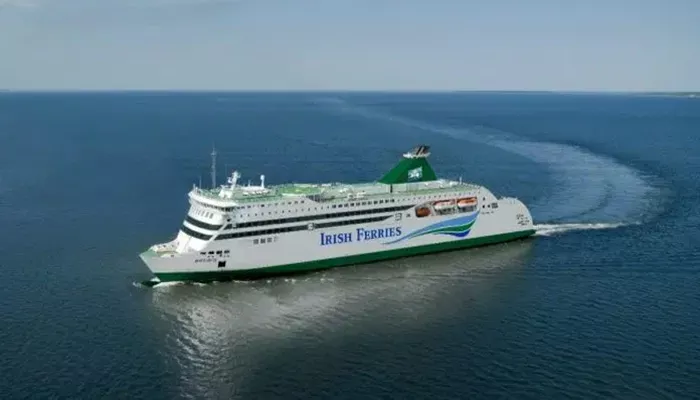Irish Ferries has announced a significant step towards sustainability with its high-speed catamaran, the Dublin Swift, becoming the company’s first vessel to use hydrotreated vegetable oil (HVO) as a fuel source. This move marks a major milestone in the ferry operator’s commitment to reducing its environmental impact.
HVO is a biofuel made from waste byproducts and non-consumable products derived from the food industry. It is recognized for its ability to power diesel engines without producing additional carbon emissions, making it a cleaner alternative to traditional diesel. Irish Ferries is now using HVO on its Dublin-Holyhead route and plans to expand its use, aiming to power all four of the Dublin Swift’s engines with HVO in the coming months. This shift could reduce carbon emissions by up to 90 percent compared to conventional diesel.
Paul Balfe, representative from Circle K, which supplies the HVO fuel, called the partnership a “significant step towards cleaner maritime operations.” He highlighted how collaboration in the marine sector can accelerate the transition to a lower-carbon future, making sustainable choices more accessible.
The move is part of Irish Ferries’ broader sustainability efforts, which also reflect in the parent company, Irish Continental Group (ICG). ICG recently reported a marginal increase in operating profit for the year ending December 2024. The group saw an operating profit of €69.1 million, up 1 percent from €68.4 million in 2023. Despite a slight decline in profit before tax, which fell to €62.2 million from €63.3 million the previous year, ICG saw a 5.6 percent increase in revenue, rising from €572 million to €603.8 million.
ICG also noted that its operations were impacted by the closure of Holyhead Port in January due to damage from Storm Darragh in late 2024. However, with the port’s reopening in mid-January, the company has started to see a return to more normalized market conditions.
During the period from January 1 to February 28, 2025, Irish Ferries transported 49,300 cars, marking a 17 percent decline compared to the same period in the previous year. The company attributed the decrease to both the temporary port closure and the scheduling of drydocks, which affected passenger travel during a traditionally slower period.
Despite the challenges, Irish Ferries remains committed to its sustainability goals and is optimistic about the future, particularly with the continued use of biofuels and the recovery of market conditions.

